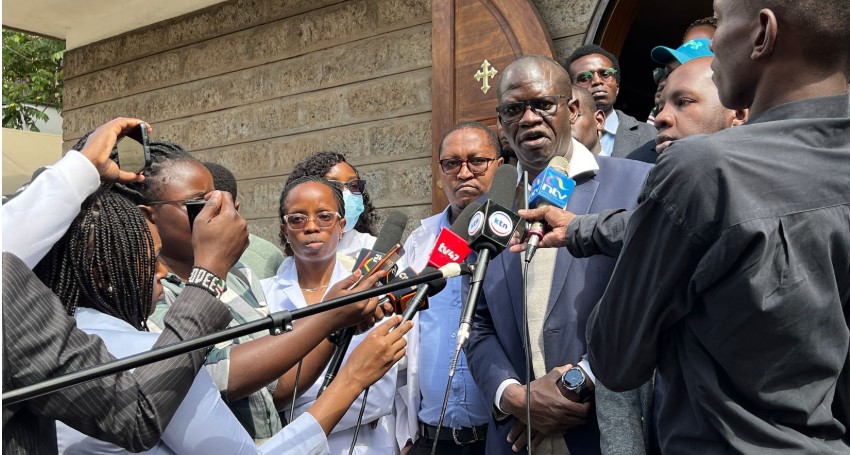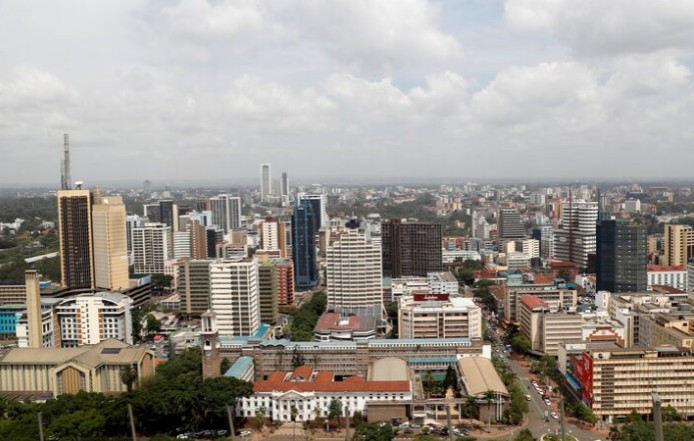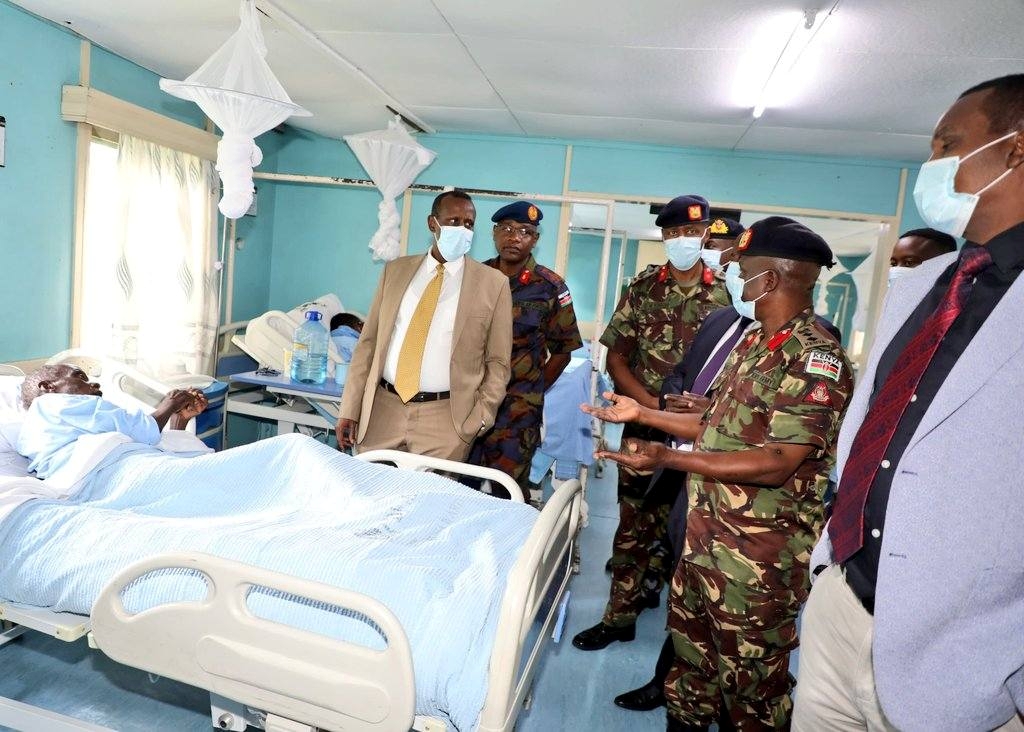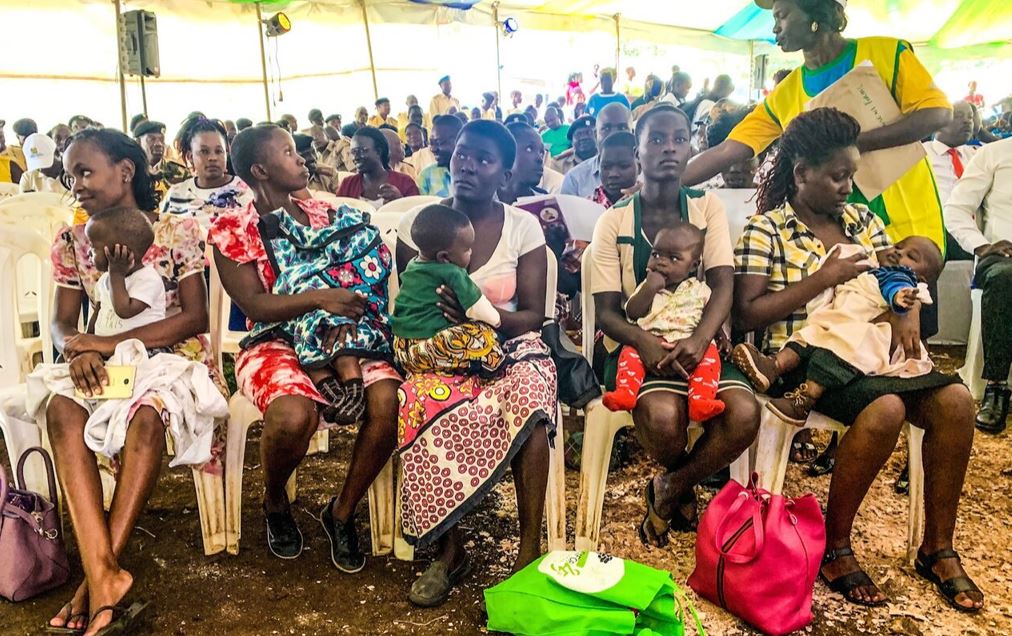Cholera crisis deepens in South Sudan as cases surge past 24,000
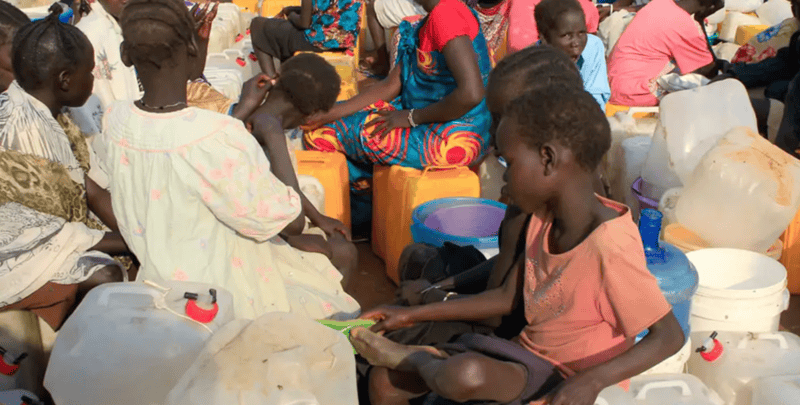
The initial cases were traced to refugees fleeing the conflict in Sudan, but the situation has worsened as the disease spread rapidly across the country.
The cholera outbreak in South Sudan has spread at an alarming pace, leaving health officials on high alert despite efforts to bring the situation under control.
Dr. Mohammed Musoke, who spoke to Médecins Sans Frontières (MSF), shared his concerns about the unusually rapid spread of the disease, which has affected over 24,000 people and caused 475 deaths since it was first declared in October 2024.
"The outbreak in South Sudan has been particularly unusual because of how quickly it spread," said Dr. Musoke
More To Read
- South Sudan's military recaptures key town from White Army militia
- South Sudan dispatches high-level delegation to US for urgent deportation and bilateral talks
- UN criticises global inaction as South Sudan teeters on brink of civil war
- Salva Kiir appoints new foreign minister as he seeks to rebrand South Sudan’s image
"What started as a localised problem in Renk, near the Sudan border, has now reached seven out of South Sudan's ten states, and it has spread to the Ruweng Administrative Area, he explained
The initial cases were traced to refugees fleeing the conflict in Sudan, but the situation has worsened as the disease spread rapidly across the country.
While there has been some improvement in Sudan, South Sudan continues to battle the outbreak, with medical teams working alongside the Ministry of Health to support the response.
MSF has been instrumental in setting up 388 beds in cholera treatment centres across five affected states and vaccinating over 200,000 people in at-risk areas.
Despite these efforts, the country's fragile healthcare system has made the response more difficult.
Dr. Musoke narrated how the situation was exacerbated by funding cuts to South Sudan's health sector, which began in 2022.
"Even before the cholera outbreak, the country's healthcare system was already under strain. Many clinics and state hospitals lost funding, and staff went unpaid for months. Health supplies ran out, and none of the health facilities closed in 2022 have been reopened," he explained.
The poor conditions in many areas have made it easy for cholera to spread.
In Renk, overcrowding, contaminated water, and open defecation have created an environment where the disease can thrive.
Dr Musoke noted that the constant movement of people from one area to another has been a driving factor in the spread of the outbreak, with the disease quickly reaching cities like Malakal, Bentiu, and Juba.
In the capital city of Juba, the situation is particularly concerning in the informal settlements and camps for internally displaced people.
"The conditions we saw were shocking. Waste piled up in the streets, latrines were broken, and people were forced to defecate outside. There was no access to clean water, and raw sewage was running through the camps. People arrived at our cholera treatment centre in critical condition," Dr Musoke explained.
To tackle the outbreak, Dr. Musoke stressed the importance of preventative measures.
"So far, the response has been mainly reactionary, focusing on treating those already sick. But we need to get ahead of the spread by identifying potential hotspots and vaccinating people before the disease reaches them," he stated.
MSF has already vaccinated people in areas like Rejaf and Don Bosco, slums surrounding Juba, and has distributed water purification tablets to help reduce the risk of contamination.
However, long-term solutions are needed, such as improved access to clean water, waste management, and healthcare services in these vulnerable areas.
Dr. Musoke warned that while some stabilisation is seen in the worst-hit areas, they are still far from being out of danger.
"We need to keep a close watch on where the disease might strike next. If we don't address the underlying issues, such as the lack of adequate health services, we'll face similar outbreaks in the future," he said.
As the cholera situation stabilises, MSF and other humanitarian organisations are calling for increased funding and support to strengthen South Sudan's healthcare system.
Dr. Musoke noted that without these improvements, the country will continue to face recurring disease outbreaks, with devastating consequences for its people.
Other Topics To Read
Top Stories Today











